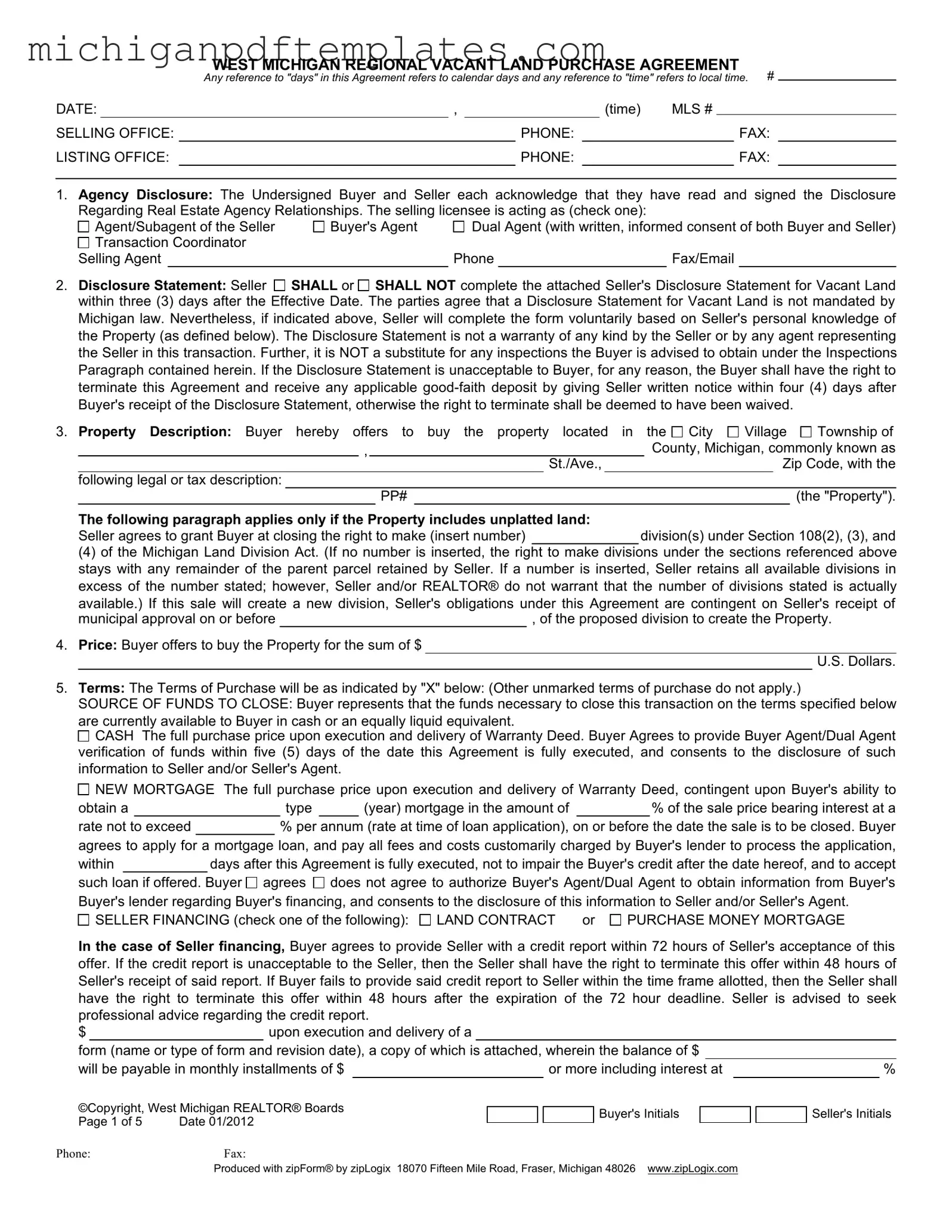Fill in Your West Michigan Vacant Land Agreement Form
The West Michigan Vacant Land Agreement is a legal document that outlines the terms and conditions for purchasing vacant land in the West Michigan region. This form serves to protect both buyers and sellers by clearly defining their rights and responsibilities throughout the transaction process. For those interested in acquiring vacant land, filling out this form is an essential step; click the button below to get started.
Get Your Form Now

Fill in Your West Michigan Vacant Land Agreement Form
Get Your Form Now

Get Your Form Now
or
▼ PDF Form
Finish this form quickly and move on
Fill in and complete West Michigan Vacant Land Agreement online quickly.